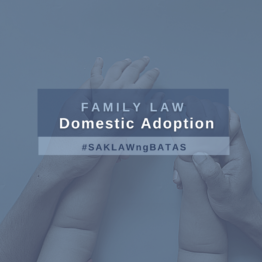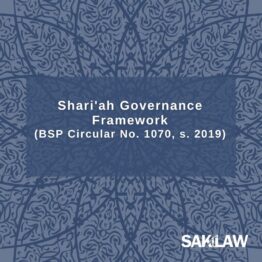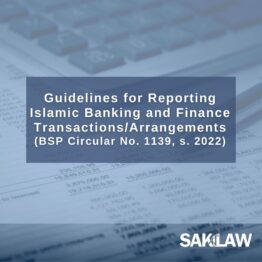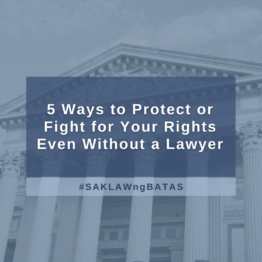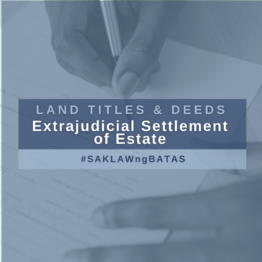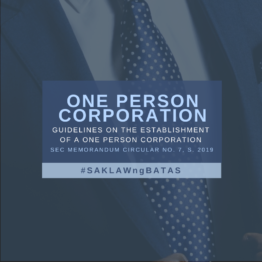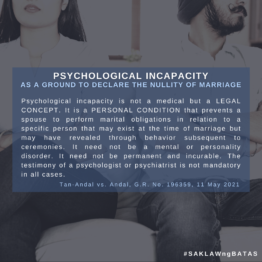
1. Work / Employment Requirements
A foreigner who comes to the Philippines to work must obtain a work visa from the relevant government agency, primarily, the Bureau of Immigration (BI), as well as an alien employment permit (AEP) from the Department of Labor and Employment (DOLE).
The visa and AEP applications must be filed by a local petitioning company on behalf of the foreigner.
The foreigner may commence work in the local petitioning company upon the filing of his/her application for an AEP with the DOLE.
In cases of short-term employment (i.e., less than six months) for positions that are temporary in nature (i.e., consultancy), a foreigner will only be required to apply for a special work permit with the BI.
Generally, the work visa and AEP applications are filed after the foreigner has arrived in the country and has been admitted on a tourist or 9(a) visa. An application will be filed for the conversion of the tourist or 9(a) visa into the appropriate work visa.
Except for certain restricted nationals, a foreigner may enter the country without a pre-approved tourist or 9(a) visa. Upon entry, he will be provided either a 21-day or 7-day visa, depending on his nationality, provided that he has an outbound ticket with him.
The following are the more common types of work visas:
1.1 Multiple Entry Special Visa
This visa is available to:
- foreign personnel of offshore banking units of foreign banks duly licensed by the Central Bank of the Philippines to operate as such; and
- foreign personnel of regional or area headquarters of multinational companies which are officially recognized by the Philippine
Government.
The expatriate, his spouse, and unmarried minor children under 21 years of age, if accompanying or joining him/her after his/her admission into the country as a non-immigrant, may be issued multiple-entry special visas valid for one year, which may be extended from year to year upon legal and meritorious grounds.
1.2 Special Non-Immigrant or 47(a)(2) Visa
This visa is granted under Section 47(a)(2) of the Philippine Immigration Act that allows the President to issue such visas when public interest so warrants, subject to such conditions as he may prescribe.
The President, acting through the appropriate government agencies, has exercised this authority by allowing the entry of foreign personnel employed in supervisory, technical or advisory positions in Export Processing Zone Enterprises, Board of Investments registered enterprises, and Special Government Projects (e.g. MRT, Skyway).
This visa is generally valid for an initial period of one year and is renewable from year to year.
1.3 Pre-Arranged Employment or 9(g) Visa
This visa is available to a foreigner who will be occupying an executive, technical, managerial, or highly confidential position in a local company and who is proceeding to the Philippines to engage in any lawful occupation, whether for wage or salary or for other forms of compensation, where a bona fide employer-employee relationship exists.
The pre-arranged employment visa is granted for a period co-terminus with the AEP, which in turn, is granted for a period discretionary to the DOLE, usually based on the duration of the election or appointment of the foreigner. However, the officers
of the BI have the discretion to shorten the validity period of the approved 9(g) visa to one year.
1.4 Treaty Trader’s or Investor’s Visa
A foreigner is entitled to enter the Philippines as a treaty trader or investor only if he is a national of the US, Germany or Japan, countries with which the Philippines has concluded a reciprocal agreement for the admission of treaty traders or investors.
The local petitioning company must be majority-owned by US, German or Japanese interests. The nationality of the foreigner and the majority of the shareholders of the employer company must be the same.
The foreigner must be employed in a supervisory or executive capacity. When granted, the visa may be extended to the foreigner’s spouse and unmarried children below 21 years of age. The visa is generally valid for a one-year period subject to extension upon application.
1.5 Subic Bay Freeport Work Visa
A foreign national who possesses executive or highly technical skills, which no Filipino citizen within the Subic Bay Freeport possesses, as certified by the DOLE, may apply for this visa with the Subic Bay Metropolitan Authority.
2. Special Resident Visas
In addition to work visas, a foreigner may also apply for special resident visas. These visas allow a foreigner to work in the Philippines, subject to other requirements or limitations imposed by law.
The following are the different types of special resident visas:
2.1 Special Resident Retiree’s Visa (SRRV)
The SRRV program is available to foreigners and former Filipinos at least 35 years of age, who deposit the minimum amount required by law with a bank accredited by the Philippine Leisure and Retirement Authority.
The holder of an SRRV may stay in the Philippines indefinitely or visit the country at any time.
The holder may also invest in or establish a business in the Philippines.
2.2 Special Investor’s Resident Visa (SIRV)
Any foreigner, at least 21 years of age, willing and able to invest at least US $75,000 in the Philippines, may apply for this visa.
The applicant’s spouse and unmarried children who are less than 21 years of age, accompanying the applicant, may be included in the visa application. Unlike the SRRV, there is no limit to the number of unmarried children that can be included in the application.
2.3 SIRV for Investors in Tourist-Related Projects and Tourist Establishments
A foreigner who invests the amount of at least US $50,000 in a qualified tourist- related project or tourism establishment, as determined by a governmental committee, shall be entitled to an SIRV.
2.4 Subic Bay Freeport Residency Visas for Retirees
This visa requires the applicant to be over 60 years old, of good moral character, with no previous conviction of a crime involving moral turpitude, no longer employed or not self-employed, and receiving a pension or passive income which is payable in the Subic Bay Freeport in an amount exceeding US $50,000 per year.
3. Special Visa for Employment Generation (SVEG)
The SVEG is a special visa issued to a qualified non-immigrant foreigner who shall actually employ at least 10 Filipinos in a lawful and sustainable enterprise, trade, or industry. Qualified foreigners who are granted the SVEG shall be considered special non-immigrants with multiple-entry privileges and conditional extended stay.
The privileges of the SVEG may extend to the foreign national’s spouse and dependent unmarried children below 18 years of age.
Foreign nationals who wish to avail of the SVEG must comply with the following conditions:
- he/she must actually, directly, or exclusively engage in a viable and sustainable commercial investment/enterprise in the Philippines, exercise/perform management acts, or have the authority to hire, promote, and dismiss employees;
- he/she evinces a genuine intention to indefinitely remain in the Philippines;
- he/she is not a risk to national security; and
- his/her commercial investment/enterprise must provide actual employment to at least 10 Filipinos in accordance with Philippine labor laws and other applicable special laws.
The SVEG may be revoked by the Bureau of Immigration:
- if the SVEG holder fails to maintain compliance with any of the above conditions;
- if the SVEG was obtained through fraud or willful misrepresentation of material facts;
- upon conviction of the foreign national for a crime or offense in the Philippines; or
- upon a final determination by competent authority that the foreign national poses a risk to national security.
Disclaimer: All of the information on this website is provided as general information, not as legal advice, nor as a solicitation for legal services. The information is not provided in the course of an attorney-client relationship between Atty. Salma F. Angkaya-Kuhutan and anyone who views it. Viewers should not rely on the information contained in this website when making decisions regarding legal matters but should consult a qualified attorney for legal advice. You should not act based solely on the information found on this website and are strongly advised to seek the legal opinion of a lawyer.
You may contact the Attorney through the information provided on this website if you are interested in the legal representation, counseling, and related legal services that we provide.

